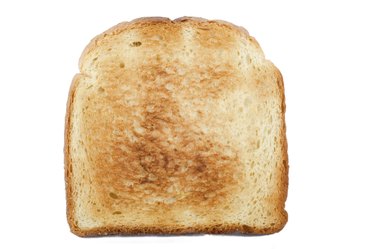
Your body is constantly burning carbohydrates and converting them to usable energy like glucose and glycogen. According to the National Strength and Conditioning Association, carbohydrates are your body's preferred source of energy. Although you are always burning carbohydrates, certain activities can help you to burn them faster. Burning more carbohydrates will lead to weight loss and an overall drop in body fat.
Step 1
Get active. If you're sitting down all day behind a desk or on the couch watching TV, chances are you're not burning very many carbohydrates. The more you move your body and stay active, the more carbohydrates you'll burn. Try going for a walk every day or take a 5-minute walking break every hour.
Video of the Day
Step 2
Go running. Running is an excellent way to burn carbohydrates. Glucose is the most readily available source of energy your body has. When you run, your body pulls glucose from your blood and uses it to deliver oxygen to working muscles and cells.
Step 3
Lift weights. Lifting weights requires your muscles to burn carbohydrates through the use of glycogen. According to the American College of Sports Medicine, some carbohydrates in your body get converted to glycogen and then are stored in your muscles for later use. When you lift weights, the glycogen in your body gets used up. Then your body will use up more carbohydrates to replenish glycogen stores in your muscles.
Step 4
Eat smaller meals. When you eat huge meals, you can cause an insulin spike in your blood. Insulin removes glucose in your blood and stores it as fat, causing a drop in your blood sugar and metabolism. A slow metabolism means your body will burn carbs slower. Eating small meals more often prevents insulin spikes and keeps your digestive system working for longer, which as a bonus, speeds up your metabolism.
Tip
Keep an activity log. This way, you can plan a time during the day to be active, which will help you burn more carbs and calories.
Warning
Avoid low-carb diets or cutting carbs from your diet completely. Doing so can cause hypoglycemia, fatigue, and can slow down your metabolism.
Video of the Day